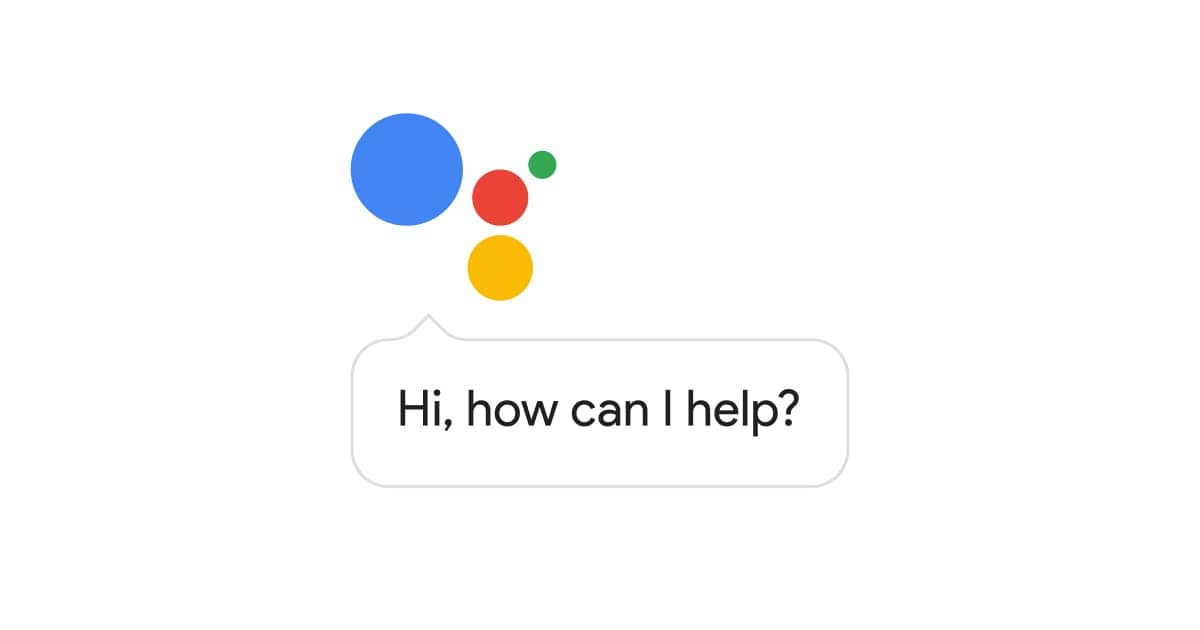Google’s CEO Sundar Pichai showcased his company’s new Google Assistant feature called Google Duplex at the annual Google I/O event that took place in May.
This feature is designed to help people have a natural conversation with computers, according to a blog post from Google engineers. The aim of this technology is to carry out “real tasks” over the phone.
During the eye-popping demonstration at Google I/O (seen in the YouTube below), Duplex calls to schedule a hair appointment and to book a table at a restaurant. Both times, the virtual assistant sounds perfectly like a human. Using deep neural networks and vast datasets, the assistant knows to use expressions like “uh” and “hmm” at the right places.
[tg_youtube video_id=”JvbHu_bVa_g”]
In fact, the restaurant conversation didn’t go as expected, but the Google assistant was able to handle the conversation deftly. According to Pichai, this technology represents the many investments Google has made over the years, especially in the areas of natural language processing and text-to-speech conversion.
Though this technology impressed everyone at the demonstration as well as the millions of people who saw it online, it has also raised some concerns.
First off, let’s look at the bright side and see how this technology can make our lives better.
Upsides
Google Duplex is undoubtedly a revolutionary product that has crossed the threshold of human-machine interactions and conversations. When used well, it can bring innumerable benefits to businesses and individual users.
Business

This product can be a great addition to any business, especially those that don’t offer an online booking tool for its customers. Since these businesses rely heavily on phone and personal interactions with customers, Google Duplex can bring in more customers for them.
According to Pichai, more than 60 percent of businesses do not have an online booking system, so this feature can greatly boost their sales.
Take the case of the tourism industry. One of the barriers to travel is language. So if the Google Assistant can make calls in any language, it can help tourists book a table at any local restaurant, get an appointment with immigration services, call a police during emergency, make the most of available deals, and so much more. All this could translate to more clients and revenue for many local businesses. In this sense, it augurs well for both businesses and users.
Personal
This AI-product is a great tool for users, too. How many times have you called someone to book an appointment or to get something? It’s a boring job that most of us try to postpone or even skip, if possible.
Google Duplex could change this behavior, as you can get on with your work and this virtual assistant will take care of the rest for you. In a way, it can save a ton of time and effort, and at the same time, take many boring jobs off your shoulders.
Duplex also understands loss of sync during the call and knows how to elaborate the message to reduce misunderstandings. It can also repeat a call if the number was missed and even understand when someone puts it on hold. Everything is just human-like, except that it is a bot and not a human personal assistant.
Now, let’s look at how it could turn out to a bane for our personal and social lives.
Downsides
Ethical grounds

One of the first questions that we should ask is whether this technology is ethical at all?
Before answering this question, let’s understand what we mean by ethics here. Generally speaking, it is a combination of values that protect the well-being of others and oneself.
Google Duplex is a technology that could pose a problem for you in some situations. The demonstration showed how the technology can talk like humans and deceive the other person into thinking that they are talking to a human. But what happens when this technology falls into the hands of spammers and con artists? They will try to use a human-sounding voice to convince you to give away some details or make you come to a certain place to assault you, or just about any other action aimed to cheat and harm you. In fact, the possibilities are endless on this side too.
Already with existing technology, we have seen so many frauds and violence. Imagine what happens when something this advanced falls into the wrong hands. Why even create something like this, when it can put anyone in danger?
There is no protection for the well-being of others too because when a person answers a call, he or she is never sure if the speaker is you or the assistant. In a way, you’re cheating the person on the other end of the call by not revealing that it’s a bot calling and not a human. This is clearly unethical.
After much hue and cry was raised about the ethical aspects, Google finally decided to respond. It announced that the demonstration was only a glimpse into the technology, and disclosures will be built in when Google Duplex is eventually rolled out. But, the question is, how is it going to fit the disclosure into the call? Imagine, the bot calls and says, “Hi! I’m the Duplex bot talking. I’d like to book an appointment at your business.” This is the kind of disclosure that would make the technology ethical. But it also brings up the question — why have a bot talk like a human to say that it is a bot? So the disclosure is a gray area and there’s no clarity on where it will fit in.
Already, we are flooded with so much fake news and unrealistic photos that we don’t know what to believe. Now we won’t even know if we’re talking to a human or a bot!
Even worse, what happens when bots talk to each other? Will they even care to be so polite if it’s just another bot?
Maybe this sounds too far-fetched now, but the ethical issues are true and something to think about.
Privacy
Privacy and ethics go hand in hand in many cases, and it’s no different here. The Google Assistant has access to all the information on your phone, so what’s the guarantee that it will not use this information to complete the task and give away personal information you don’t want divulged? How much control will you have over the bots to ensure that it doesn’t give out this confidential information?

Worse, you can never interfere in the call when your bot is talking. You can’t even know how the conversation is going because you’re notified of the result only after the call is done.
This mode of operations could have serious implications for your privacy.
Real-life application
Will Google Duplex be as amazing as Google claims, and will it really make life better for us?
It’s a million-dollar question because in the past, Google’s demonstrations have been great but its products have not lived up to the hype. Take, for example, Google’s Pixel Buds. The promise of on-the-fly translation created much excitement during 2017’s Google I/O. But, when the product was released, it was a disappointment.
A similar fate could await Google Duplex. We have to watch with our fingers crossed to see how Duplex emerges. In fact, the real-life applicability could also depend on the features of the final release.
Sensory dynamism
Sensory dynamism is our mental ability to perceive a set of objects. When you look out of a window, you perceive different aspects such as color, sound, and at times, even emotions. But when you look at your mobile device, you’re looking only at a few of these aspects at a time. With frequent use, these gadgets can cloud our sensory perception, and we might end up relying too much on them for even our most basic tasks.
This dependence on devices has already reduced human interactions. Many of us today prefer to text instead of making a phone call. This has led to the exacerbation of a condition called social anxiety disorder, or social phobia, for short. We are fueling this disorder by hiding ourselves from human interactions, and Google Duplex is only going to accentuate it.
Psychologists tell us that when human interactions go down, it leads to more serious conditions such as isolation and depression,.
In this sense, Google Duplex may have an impact on our social skills, especially with long-term use.
Is Google Duplex a boon or a bane?
In short, Google has created a new threshold for human-machine interaction with its new AI product. Though it is feared to open up ethical, security, and privacy issues, it could also bring many benefits to businesses and individuals, when used well.
It remains to be seen what the final release of Duplex is going to look like, whether it will have the necessary disclosures, and how well it can be used in our everyday lives.
Until then, we’ll ride through the hype, keep our fingers crossed, and hope that Google gives a truly advanced product that could change our lives and society for good.
Please share your thoughts about Google Duplex and how you think it will impact our lives.
Featured image: Flickr / Marco Verch



